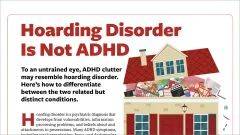RSV Symptoms: Here’s How the Virus Shows Up Differently in Babies, Adults, and Seniors
, chances are, you’ll all feel pretty much the same (mildly rotten). But with respiratory syncytial virus, or RSV, how old you are can affect how sick you get. “Respiratory syncytial virus does present differently in folks of different ages,” says , a member of the board of directors of the American Academy of Family Physicians and the chief health officer for Montgomery County, Maryland.A little background: RSV causes infection in your respiratory tract, which includes your lungs and other organs that make it possible for you to breathe.
The virus is very contagious and can spread quickly in daycares and nursing homes through sneezing and coughing. It’s also transmitted through close contact, like touching your nose or mouth after touching a contaminated doorknob, countertop, or other hard surface or object, where the virus can live .
People with RSV are most contagious during the first week of infection, though the virus can continue to spread up to a month after symptoms have disappeared, according to .Healthcare providers can using a rapid antigen test or a molecular test, which is able to pinpoint smaller amounts of the virus. (Molecular tests may be used for older children and adults, who tend to have less of the virus in their noses than infants and young children do.) The most common way to collect a sample from your nose is to insert a saline solution and gently suction it out, though your doctor may also swab the inside of your nose.
They may also do a chest X-ray to test for inflammation in the lungs. Healthy adults and older children don’t usually need RSV testing, though some at-home kits test for Covid-19, , and RSV all at once.
Read more on glamour.com


















































